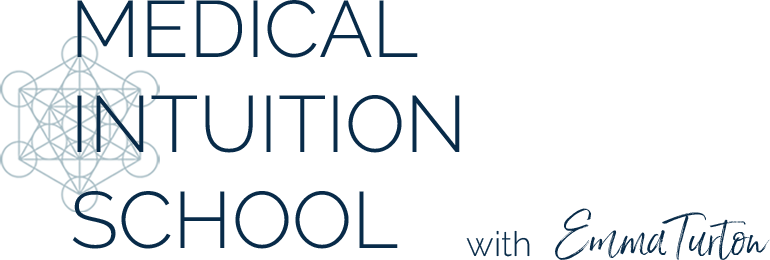The Enigmatic World of Medical Intuition
The human body is an intricate tapestry woven with the threads of physiology, psychology, and the perplexing patterns of life. Sometimes, when the fabric is fraying, the standard procedures of modern medicine don’t seem to offer sufficient explanation or resolution. What if, in these moments, a different kind of healer could provide a map to the maze, guiding you to the very source of your ailment? Enter the enigmatic world of medical intuition – a realm where intuition and medical knowledge entwine to offer a holistic understanding of health and wellness.
Understanding Medical Intuition
Medical intuition is not merely a gloss of new-age mysticism over traditional medicine. It’s a nuanced skill wherein a practitioner, known as a medical intuitive, uses extrasensory perception to zoom into the underlying causes of physical and emotional distress. Unlike the reactionary approach of medicating symptoms, medical intuitives seek to understand the body’s language, revealing the messages it’s trying to convey.
These practitioners often have a background in healthcare, blending traditional medical training with intuitive skills. They may analyze the body’s energy, scan for imbalances, and interpret what these signals might indicate about a patient’s health. This integration of intuition and observation allows for a more personalized and in-depth analysis of one’s well-being.
The Intuitive Eye: How Does it Work?
Medical intuitives don’t rely solely on scientific instruments or lab tests. Instead, they harness their intuitive senses to gather information about the client’s condition. Through techniques such as remote viewing, energy scanning, or empathic feeling, they claim to visualize the patient’s internal makeup, identifying areas of weakness or blockages in the body’s flow of energy.
The process is as mysterious as it is complex, often described as a clairvoyant vision or empathic resonance with the individual’s being. The information received may vary from intuitive to intuitive, but the overarching belief is that the human body emits distinct energy patterns that can be ‘read’ by those attuned to such frequencies.
The Curious Case of Missing Links
Medical intuition steps in when traditional diagnostics hit a roadblock. It’s for cases where symptoms persist despite conventional treatments, or for those mysterious maladies that leave both patients and practitioners baffled. The intuitive’s insights can bridge gaps left by standard procedures, offering a new perspective on the complex interplay of physical, emotional, and spiritual ailments.
The medical intuitive’s analysis often becomes a precursor to further, targeted medical testing. By providing a directed starting point, they can expedite the diagnostic process, potentially saving precious time in identifying and treating the true cause of the issue.
Skepticism and Science: A Delicate Balance
The practice of medical intuition invokes skepticism, and rightly so. In a world that extols the virtues of scientific rigor and evidence-based medicine, the claims of intuitive diagnostics can seem outlandish. Yet, some practitioners and their clients are insistent that the results speak for themselves, with testimonials of diagnoses confirmed by more traditional means.
It raises important questions about the nature of evidence and the limits of what we can explore through the scientific method alone. Can we measure the reliability of intuition with the same yardstick we use for blood tests and MRIs? Or does the ethereal nature of intuitive insights push us to expand our understanding and approach to medicine?
Holistic Healing and Well-Being
An intriguing facet of medical intuition is its inherent drive towards holistic healing. By pinpointing the root cause of symptoms, the approach naturally encompasses all aspects of an individual’s well-being – from physical health to mental and emotional equilibrium. This holistic assessment often leads to recommendations that go beyond prescription medications, such as changes in diet, lifestyle, or deeper forms of therapy.
The emphasis on the mind-body connection and the role of spirituality in well-being offers a more comprehensive framework for health. It dovetails with a growing recognition – even in mainstream medicine – that treating symptoms without addressing the whole person can be an incomplete approach.
Navigating the Unseen Terrain
For those who turn to medical intuitives, the experience can be akin to navigating a previously unseen terrain. It’s an encounter with an alternative mode of understanding, one that comes with its own set of beliefs and practices. Clients may be asked to share minimal information, as the intuitive aims to unravel the body’s story from its own narrative.
But how does one choose a guide through this uncharted course? With no board certifications or official regulatory bodies for medical intuition, the onus is on individuals to seek out practitioners with established reputations and a record of ethical practice. It’s about finding a balance between being open to new approaches while still maintaining a healthy dose of critical inquiry.
Looking to the Future
The future of medical intuition is as uncertain as the vast frontier it seeks to explore. Will it remain the terrain of spirited individuals offering an alternative perspective, or will it find a more integrated place within the landscape of healthcare? It’s possible that we may see a wave of scientific exploration aimed at validating – or debunking – the claims of intuitive diagnostics.
Advances in our understanding of energy medicine and the mind’s influence on the body could offer new pathways for acceptance within the medical community. Perhaps, over time, we’ll come to recognize that the tools for healing may be as diverse as the individual human experiences they seek to address.
